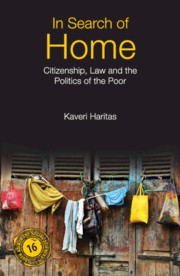5 - Paper Visibility and Proof Making
Published online by Cambridge University Press: 24 July 2021
Summary
The public, press, government and even many NGOs think of slum dwellers as an underprivileged class. They don't realise that we know our needs and want to put them across in our own way. If we need help, we’ll ask. But we should be allowed to speak for ourselves (Isaac Arul Selva, interview for the Outlook, 10 September 2001, in Merchant [2001]).
When I began my research in Laggere in early 2010, I was almost always asked if I was a journalist. With a dictaphone in hand and a book readily whipped out to take notes, there was an expectancy in the air as people asked me which paper I was writing for, what I would write and when it would be printed. Often when my dictaphone was hidden in my bag, I would be asked if I was from the government (sarkaradinda na?). When I explained that I was a student and that my work would be published much later in the form of a book, they often asked when they could see the print. Would I give them a copy? Would they benefit from what I wrote? Who would read it? Over the next five years of research I witnessed other print and media journalists coming to the area, interviewing residents, publishing articles and sometimes even preparing features on television. These features were hot news, as residents downloaded videos and articles, inviting me with great excitement to view the snippets of an interview in which they featured, or read an article in which their names appeared. They set aside their work on days when journalists were expected in the area, all well dressed and rehearsed to speak about what concerned them the most.
In 2011 I had returned to Laggere for the second time and decided to begin with Shah Taj. When I arrived at her home, she was furiously rummaging through a shelf where she stored the most precious things in her home – the mat she prayed on, a tattered Quran, jewellery, wedding invitations, family photographs, and so on. As I made myself comfortable on one of the two narrow diwans in the hall, she pulled out a faded copy of a letter and, thrusting it into my hands, disappeared into the small room to get dressed.
- Type
- Chapter
- Information
- In Search of HomeCitizenship, Law and the Politics of the Poor, pp. 141 - 174Publisher: Cambridge University PressPrint publication year: 2021



